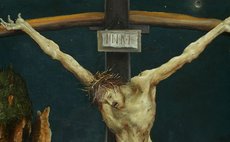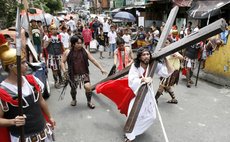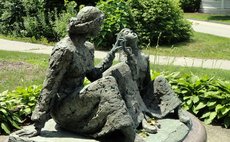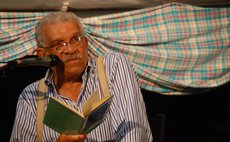The passing of an era
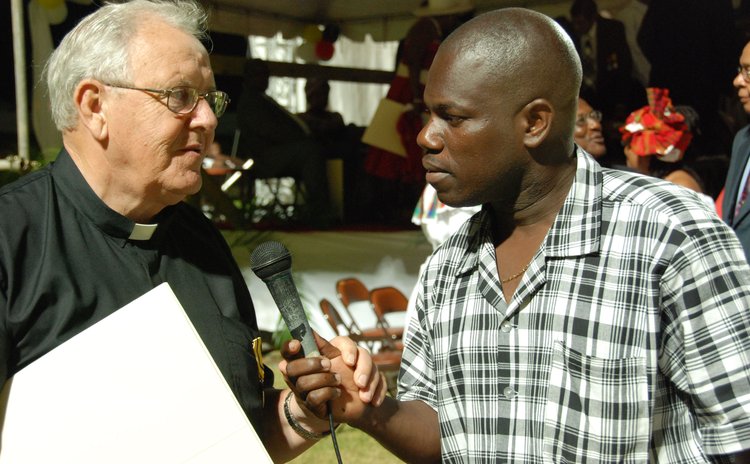
Few stages in human life have been given as much artistic expression as death. Death has often been depicted as a cruel monster who interrupts the party, a ruthless customer who despises all the rules of decency and callously invades the calm disposition of people. Death is often regarded as one who scorns the delight of happy days and defiantly cuts down the lives of innocent folk.
In the motion picture, 'The Seventh Seal', Death is ominously depicted as a tall, formidable man wearing a black coat. Armed with an axe, Death begins to strike at the trunk of the tree. Sensing what is going to befall him, the man begs for mercy. He has work to do, he has to care for his family, he pleads. In vain, he cries. Death relentlessly pursues his task.
However, there is a more sensible approach to death. Death is part of the reality of life. It is not an accident; nor is it opposed to life. "To live is to die." Indeed, death bears much meaning for humanity. As a former Secretary General of the United Nations, Dag Hammersjöld, puts it, "In the last analysis, it is our perception of death which decides our answers to all the questions that life puts to us." To meditate on death is not to take on a negative attitude to life. It is rather to visualize how we stand in this world and adapt our lives accordingly.
Father Charles Vermeulen, C.Ss.R., after about sixty years of priestly ministry, departed this life on December 4, 2016, at St. Clement's House, Belfast, Dominica. He spent more than half a century in the Caribbean with his Belgian priests and brothers in the Congregation of the Most Holy Redeemer (Redemptorists), where they have been ministering to God's people since 1902. His passing from our midst is a significant landmark. He is the last Belgian Redemptorist of all those who served in the Caribbean. His death marks the end of an era.
Father Charles will always be remembered in the history of the diocese of Roseau for his tremendous accomplishments. Devoted primarily to his pastoral work, he served in the parishes of Roseau, Goodwill, Soufriere-Scott's Head, St. Anne (Mahaut, Massacre, Canefield, etc.), St. Joseph, Wesley. He also served for some years in Antigua, St. Kitts and Anguilla. He has been Chaplain of the Young Christian Workers. He was, for some time, Vice-Provincial of the Redemptorists in the West Indies. He has been Vicar-General of the diocese of Roseau as well. He was instrumental in the institution of the Diocesan Pastoral Centre by Bishop Arnold Boghaert in 1975. Devoted to the promotion of Family Life, he introduced Marriage Encounter and Engaged Encounter, which have contributed immensely to better family life in Dominica.
However, Father Charles will be remembered even more for his activities in construction. He rebuilt the Diocesan Pastoral Centre. He it was who completed the Our Lady of Fatima Church, Newtown, constructed the Morne Prosper Chapel, the Goodwill Parish Hall, the Dominica Infirmary and also the Goodwill Pre-School building. He and Fr. Werner constructed the Holy Redeemer Retreat House. One of the best things which Father Charles did for the diocese was to invite Mr. Bernard Lauwyk, a Belgian construction engineer, to Dominica after Hurricane David.
When Dame Eugenia Charles prevailed upon Bishop Arnold Boghaert to found a 'Sister Borgia Primary School for Boys', it was to Fr. Charles that he turned to for construction. He and Mr. Bernard Lauwyk responded very efficiently. In fact, Mr. Lauwyk has been instrumental in many areas of construction: the Dominica Infirmary, the Canefield Chapel, St. Martin's School, the Roseau Cathedral and several other diocesan buildings, including the Arnold Boghaert Catholic Centre.
A very innovative approach to pastoral ministry was the formation of Miss Noeliva Leblanc at the Seminary of St. John Vianney and the African Martyrs, Trinidad. This enabled her to hold positions as diocesan head of Catechetics and Chancellor of the diocese under Bishop Edward Gilbert and the Bishop Gabriel Malzaire.
Death is not our enemy. Rather, we can make him our friend. As one writer puts it, "In the old days, Death was always one of the party. Now he sits next to me at the dinner table; I have to make friends with him."

